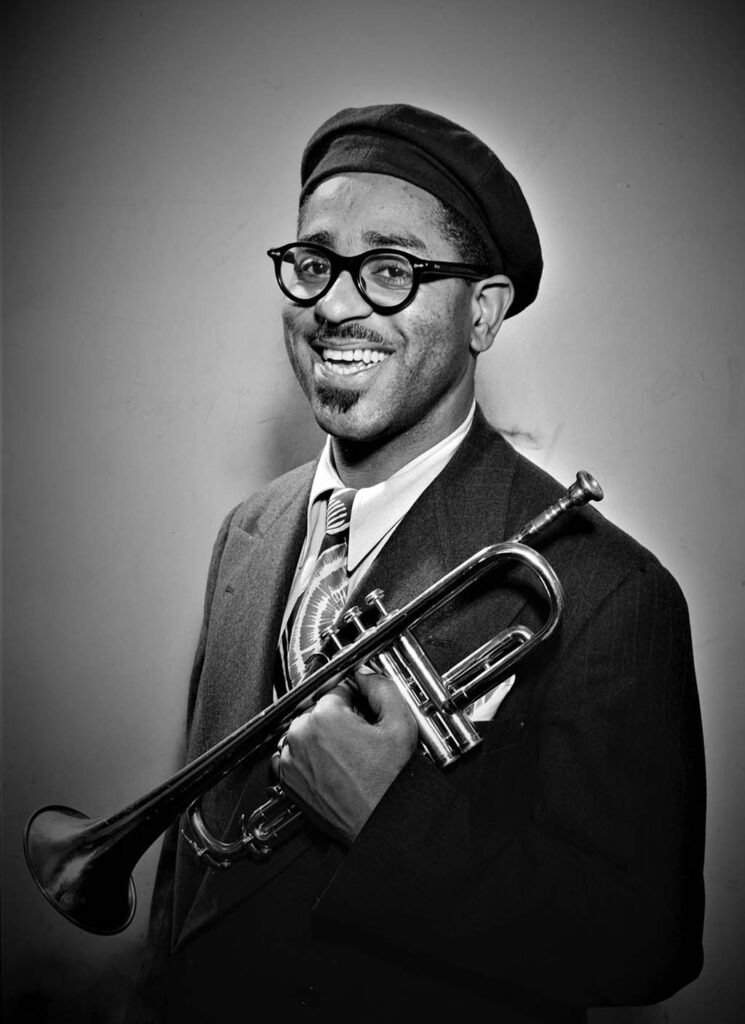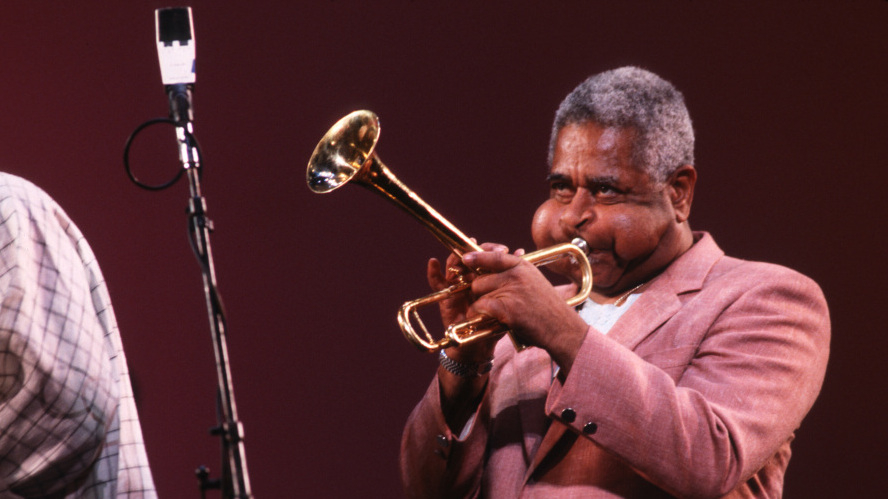Dizzy Gillespie, born John Birks Gillespie on October 21, 1917, in Cheraw, South Carolina, was a jazz trumpeter, composer, and bandleader whose innovative approach to music revolutionized the genre. He was one of the key figures in the development of bebop, a style of jazz characterized by its fast tempo, complex harmonies, and improvisation.
Growing up in a musical family, Gillespie was introduced to the trumpet at a young age. His father, a bandleader, encouraged his musical pursuits, and by the time he was a teenager, Gillespie was already showing great promise as a musician. He honed his skills by playing in local bands and studying the works of jazz legends like Louis Armstrong and Roy Eldridge.
In the late 1930s, Gillespie moved to New York City, where he quickly became immersed in the city’s vibrant jazz scene. He began performing with prominent musicians such as Teddy Hill and Cab Calloway, gaining recognition for his virtuosic trumpet playing and charismatic stage presence. It was during this time that he earned the nickname “Dizzy” for his unpredictable antics and witty personality.
In the early 1940s, Gillespie joined forces with fellow jazz innovators Charlie Parker, Thelonious Monk, and Kenny Clarke to develop bebop—a style that would forever change the course of jazz history. Together, they pushed the boundaries of traditional jazz, experimenting with complex rhythms, unconventional chord progressions, and intricate solos.
Gillespie’s compositions, such as “A Night in Tunisia” and “Salt Peanuts,” became bebop classics, showcasing his distinctive blend of Afro-Cuban rhythms, bluesy melodies, and virtuosic improvisation. His pioneering use of chromaticism and harmonic dissonance influenced countless musicians and helped shape the direction of modern jazz.
Beyond his musical innovations, Gillespie was also known for his larger-than-life personality and trademark bent trumpet. He exuded warmth, humor, and an infectious zest for life, endearing himself to audiences around the world.
Throughout his career, Gillespie continued to push the boundaries of jazz, exploring new sounds and collaborating with a diverse array of musicians. He toured extensively, performing in clubs, concert halls, and festivals across the globe, spreading the gospel of jazz to audiences of all backgrounds.
In addition to his work as a performer, Gillespie was a passionate educator and advocate for jazz education. He mentored countless young musicians, sharing his knowledge and passion for the art form with future generations.
Dizzy Gillespie’s contributions to jazz are immeasurable. He was not only a virtuoso trumpet player and innovative composer but also a cultural ambassador whose music transcended boundaries and brought people together. His legacy lives on through his recordings, compositions, and the countless musicians he inspired. Dizzy Gillespie passed away on January 6, 1993, but his influence on jazz and popular music continues to be felt to this day.


Comments are closed